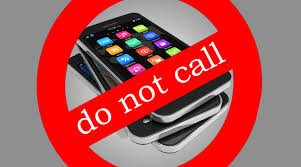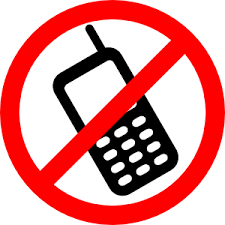 In Florida, the right to revoke calls to a consumer’s cell phone is alive and well. Debt collectors who continue to call these cell phones after being told not to are exposing their companies to damages of up to $1,500 per call. That adds up quick.
In Florida, the right to revoke calls to a consumer’s cell phone is alive and well. Debt collectors who continue to call these cell phones after being told not to are exposing their companies to damages of up to $1,500 per call. That adds up quick.
So don’t just ignore or block the calls. Take a call. See who it is. Write down who it is, and tell them not to call your cell phone again. Write that down along with the date and time of the call. Then keep a log of calls or take screen shots of continued calls. You don’t have to answer them all. Just the fact they are continuing to call is good enough. The good creditors will follow the law and stop calling. Problem fixed. For the ones that keep calling and ignore your directive not to call their cell phone, we’d like the opportunity to go after them.
Here’s some current law on the right to revoke consent to call (I recommend telling them not to call and writing down the date and time and who you spoke to — even if you didn’t give them permission to call in the first place).
 Reboot Your Life: Tampa Student Loan and Bankruptcy Attorney Blog
Reboot Your Life: Tampa Student Loan and Bankruptcy Attorney Blog


 Bankruptcy filings are down substantially in 2014 to only 910,090 which is the lowest number since 2007. Yet at the same time, people are still losing their homes especially in Florida, wages are flat or down and the cost of living continues to rise other than gas which isn’t too bad).
Bankruptcy filings are down substantially in 2014 to only 910,090 which is the lowest number since 2007. Yet at the same time, people are still losing their homes especially in Florida, wages are flat or down and the cost of living continues to rise other than gas which isn’t too bad). Revocation of Consent
Revocation of Consent  In the past year, Floridians have been hit with ten thousand or more deficiency lawsuits by Dyck-O’Neal, a collector hired by Fannie and Freddie to go after unfortunate homeowners. Many defaults have been obtained against homeowners which should not have occurred due to lack of personal and/or subject matter jurisdiction. Many folks did not even know these additional lawsuits have been filed against them. A recent New York Times
In the past year, Floridians have been hit with ten thousand or more deficiency lawsuits by Dyck-O’Neal, a collector hired by Fannie and Freddie to go after unfortunate homeowners. Many defaults have been obtained against homeowners which should not have occurred due to lack of personal and/or subject matter jurisdiction. Many folks did not even know these additional lawsuits have been filed against them. A recent New York Times  I have great news to report on our BP claims! We now have five claims being paid out in the last month alone! These of course have been pending all through the appeals process so it’s been a long wait.
I have great news to report on our BP claims! We now have five claims being paid out in the last month alone! These of course have been pending all through the appeals process so it’s been a long wait. Today, a legislator introduced a
Today, a legislator introduced a  We are still able to strip second mortgages in a Chapter 7 bankruptcy here in Tampa Bay. However, there is a risk that the window of opportunity may be closing. Bank of America has filed several challenges to the U.S. Supreme Court in the past couple of years. Two of these cases, the U.S. Supreme Court has granted certiorari and has agreed to hear them: Bank of America v. Caulkett, Case No. 13-1421 and Bank of America, v. Toledo-Cardonna, Case No. 14-163. Currently, we are in the only Circuit that allows the stripping of second mortgages and HOA liens in a Chapter 7. The only requirement is that the home be worth less than the first mortgage at the time of filing. Once stripped, the second mortgage lien is gone forever, unless the bankruptcy discharge is revoked which is very rare.
We are still able to strip second mortgages in a Chapter 7 bankruptcy here in Tampa Bay. However, there is a risk that the window of opportunity may be closing. Bank of America has filed several challenges to the U.S. Supreme Court in the past couple of years. Two of these cases, the U.S. Supreme Court has granted certiorari and has agreed to hear them: Bank of America v. Caulkett, Case No. 13-1421 and Bank of America, v. Toledo-Cardonna, Case No. 14-163. Currently, we are in the only Circuit that allows the stripping of second mortgages and HOA liens in a Chapter 7. The only requirement is that the home be worth less than the first mortgage at the time of filing. Once stripped, the second mortgage lien is gone forever, unless the bankruptcy discharge is revoked which is very rare.